Right now, my young daughter doesn’t play sports. She’s 4. Closest thing is her playing with these baseball-sized toy balls of different colors in our home. This week, she pretended they were planets. Holding a purple ball, she asked me what planet is purple, to which I asked my iPhone’s Siri, who responded: “Uranus.”
But I dream of my daughter playing sports as she gets older. And I dream of her dreaming a sports dream. And now, her dreams don’t necessarily have to be tailored. She can dream of being a pro hockey player. Or soccer player. Or basketball player.
The growth of women’s sports in 2024 has been expeditious and extraordinary. And while Caitlin Clark has defined it, a St. Louis native has embodied it — that’s hockey player Jincy Roese (previously Jincy Dunne before her marriage). A former captain at Ohio State and an Olympian, Roese now plays for Ottawa in the new Professional Women’s Hockey League.
People are also reading…

Ottawa Charge players Jincy Roese, front, and Rebecca Leslie make their way to the stage for a news conference showcasing their new PWHL hockey team jerseys during a news conference in Ottawa, Thursday, Nov. 7, 2024.
“Growing up, everyone asked me if I wanted to play in a professional league, and I’m like — that wasn’t an option, I didn’t even dream about that,” said Dunne, whose Ottawa team will play a PWHL game March 29 at St. Louis’ Enterprise Center. “And now, these girls get that. I’m so excited for them, because I think when you have that dream, and when you can dream big from an early age, the sky is truly the limit. …
“I feel like I’ve had the opportunity to do it all (in hockey), which I’m so fortunate about, but (the PWHL) is by far the coolest. It’s because this is the first time that we’ve experienced what it is to be a pro and to have consistency and support and a league and a salary and benefits and all the things that come with having a real job.”
The PWHL debuted in 2024 with financial backing from Kimbra and Mark Walter, the owner of the Los Angeles Dodgers. It started with six teams in the United States and Canada. Meanwhile, the National Women’s Soccer League started with eight in 2013 — and it’s up to 14 teams now, with some proud female ownership groups, such as reigning conference champion Washington (owned by Michele Kang) or the Los Angeles-based team called Angel City (owned by, among others, tennis legend Serena Williams and actresses Natalie Portman, Uzo Aduba and Jessica Chastain).
And of course, the incomparable Clark has leveled up the WNBA and women’s sports in general. As an Iowa star this spring, she set the NCAA scoring record and lost to South Carolina in the NCAA title game, watched by 18.7 million (and by about four million more than the men’s title game).
Drafted first overall by the Indiana Fever, Clark infused the WNBA, which in 2024 had record TV audiences, attendance and advertising dollars. There are a also number of other young WNBA players who have reached global popularity in a short time, too.
In St. Louis, here’s hoping more sports fans learn about the great Napheesa Collier, who played at Incarnate Word Academy. She led the Minnesota Lynx to the WNBA Finals. She came in second in the WNBA MVP voting. She was an Olympic gold medalist. And she has used her status and innovative mind to start a professional 3-on-3 women’s basketball league, which will launch later this winter.

Jincy Dunne, now Jincy Roese, is shown in 2013
“With women’s sports,” Roese said, “there’s a market for it and there’s an excitement. People want to be a part of it. And I think something about the women’s league that we’re finding is — everyone can get their hands in it and feel like they’re a part of it. And I think the fan experience is very intimate for those involved in women’s sports. And it’s great. You get to see these women pop up and they’re doing amazing things in their sport.
“And I think what we’re seeing too is it doesn’t have to be like the men. It can be its very own thing, and in a very, very unique way that also has a stamp of professionality on it. So it’s really awesome.”
And that point made by Roese is my biggest takeaway — that a women’s sports league doesn’t have to mirror the men’s league of its sport. Sure, the game is the same, but the culture and the personalities and the marketing can be unique for that particular league.
This, naturally, is the goal for the hockey league. Incidentally, here’s what Roese said when I asked what style of hockey fans can expect in March from her Ottawa team: “Like, you’re not going to go anywhere on the ice without getting hit by an Ottawa player in some form or fashion. And not in a dirty way at all, just in a: ‘Hey, we’re here.’ We’re letting you know we’re here.”
The Dunne family of O’Fallon (Mo.) has six siblings, including Roese, who played college hockey or also at a higher level. Incredible, right? The youngest is Joy Dunne, a 19-year-old sophomore at Ohio State.
As a freshman, Joy helped the Buckeyes win the national title — and she made the Frozen Four All-Tournament Team.
“She’s just a freak of nature,” Roese said. “She’s going to be in this league, no doubt about it, if she wants to be.”
And that’s the beautiful thing about all of this — there’s now a league for the Joy Dunnes of the world to dream about, whereas the Jincy Dunnes of the world couldn’t.
As for helping grow the women’s game, Jincy said: “Oh gosh, I take that with such responsibility. And it’s not just for her, it’s for all the girls. We have an opportunity to kind of build a legacy here and make things better for the next generation. That’s just a pay it forward (situation) for what’s already been done for all of us women in this league.
“And there are a lot of women who aren’t playing in the league who never got that chance, but fought like hell to get us where we are today. So that’s really just a continuation of what they’ve done. And I’m very fortunate. And it does hit home that I have a sister that I want to make this game better for.”
















